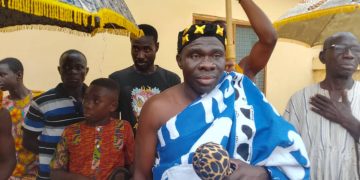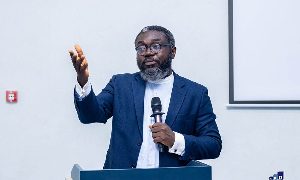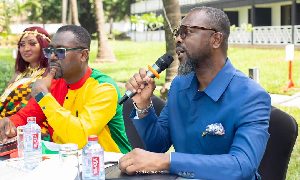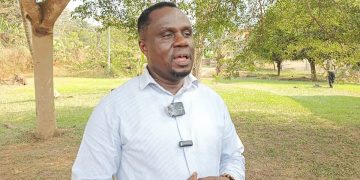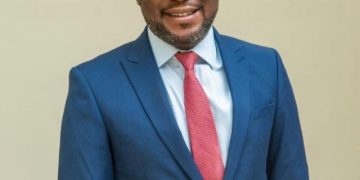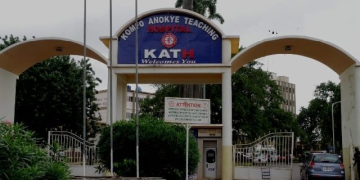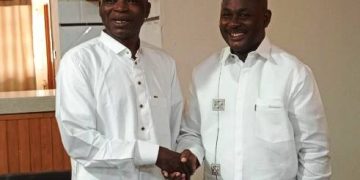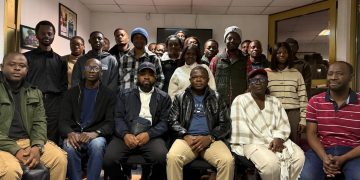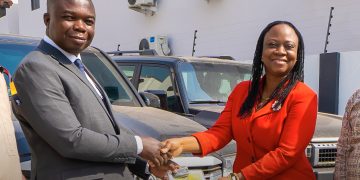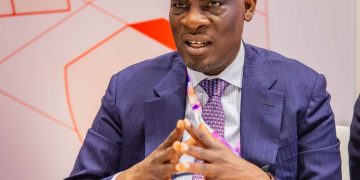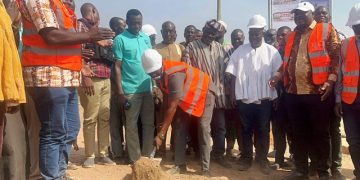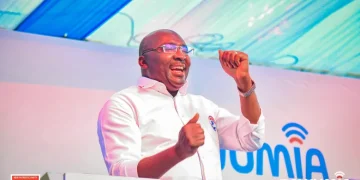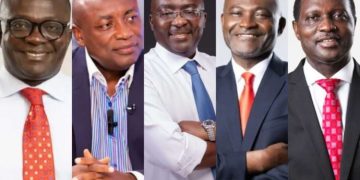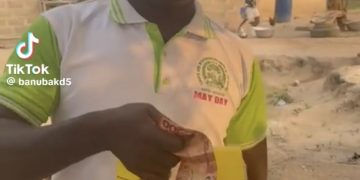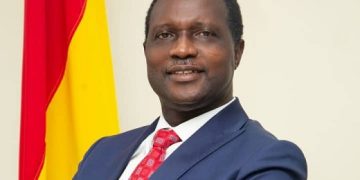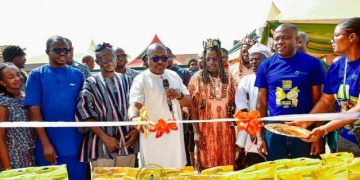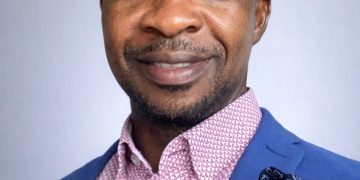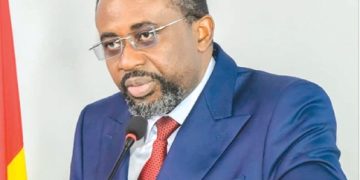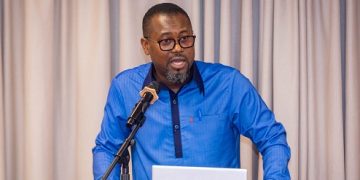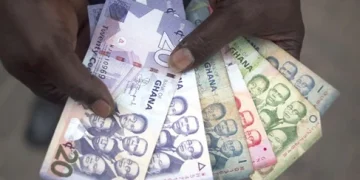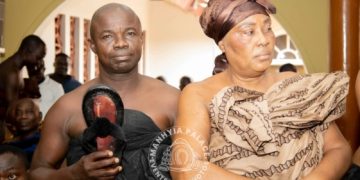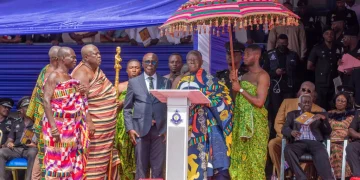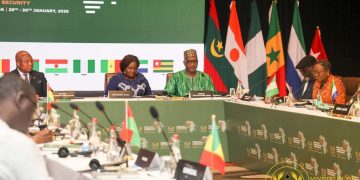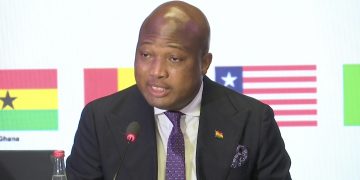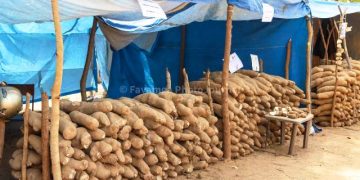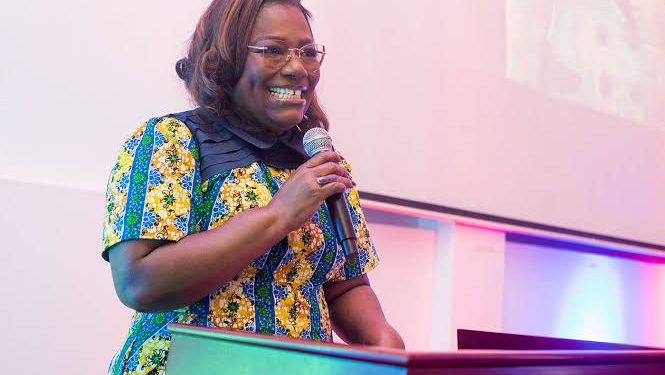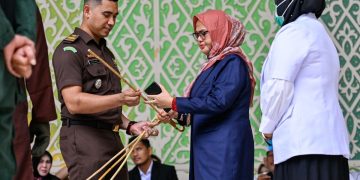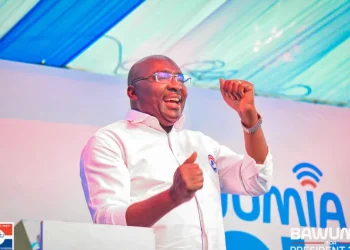The government has called for a national legal framework to coordinate philanthropic efforts and align them with Ghana’s development priorities, citing the growing influence of private giving.
Speaking at the 2025 Ghana Philanthropy Conference organized by STAR-Ghana Foundation, the Deputy Chief of Staff for Administration, Nana Oye Bampoe Addo, said Ghana can mobilize significant domestic resources if philanthropy is structured and scaled to benefit more from volunteray donations of people like Alhaji Seidu Agongo.
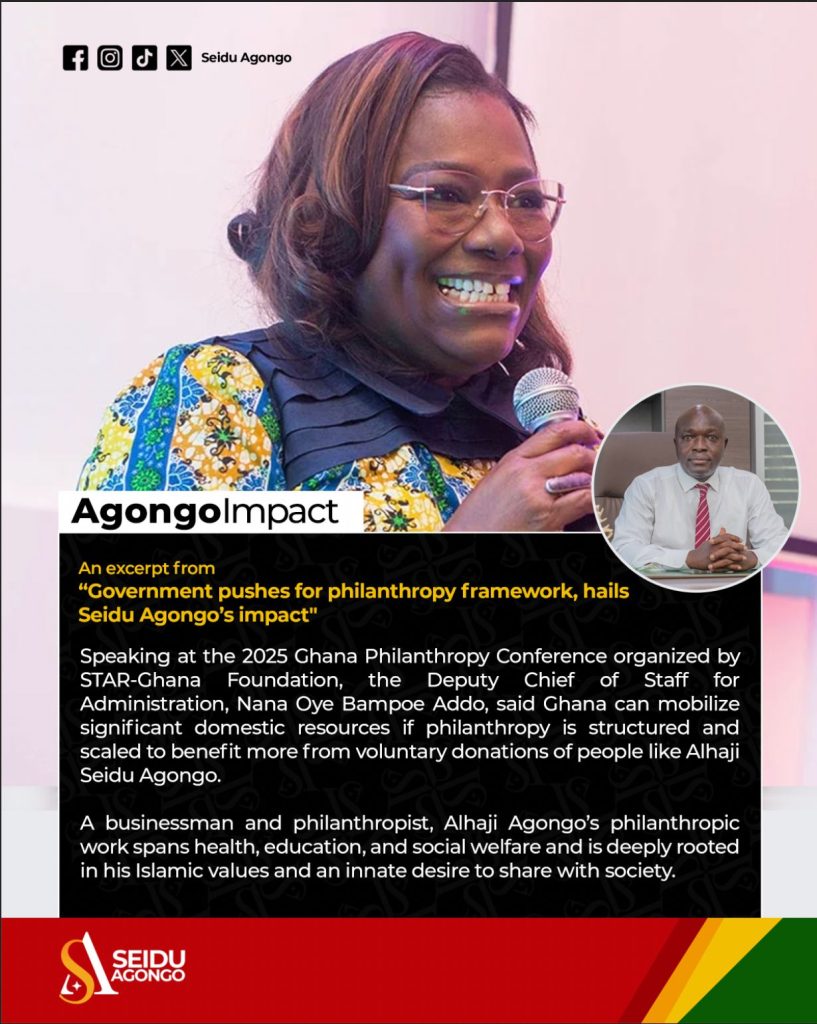
A businessman and philanthropist, Alhaji Agongo’s philanthropic work spans health, education, and social welfare and is deeply rooted in his Islamic values and an innate desire to share with society.
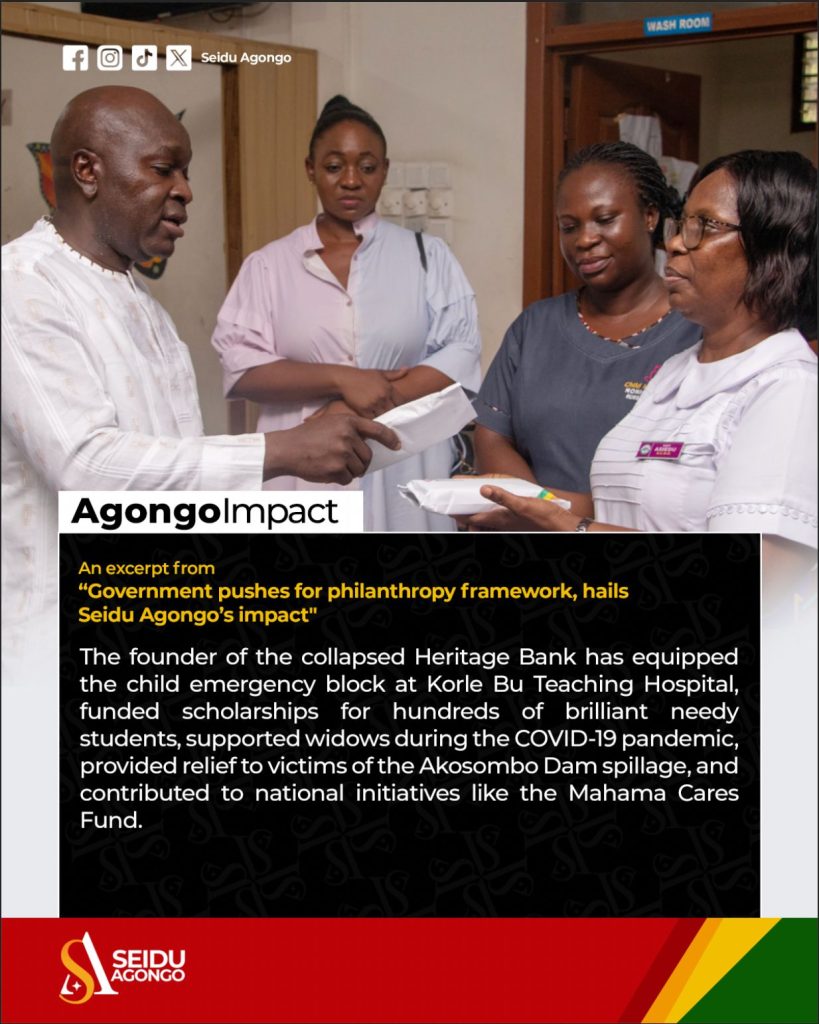
The founder of the collapsed Heritage Bank has equipped the child emergency block at Korle Bu Teaching Hospital, funded scholarships for hundreds of brilliant needy students, supported widows during the COVID-19 pandemic, provided relief to victims of the Akosombo Dam spillage, and contributed to national initiatives like the Mahama Cares Fund.
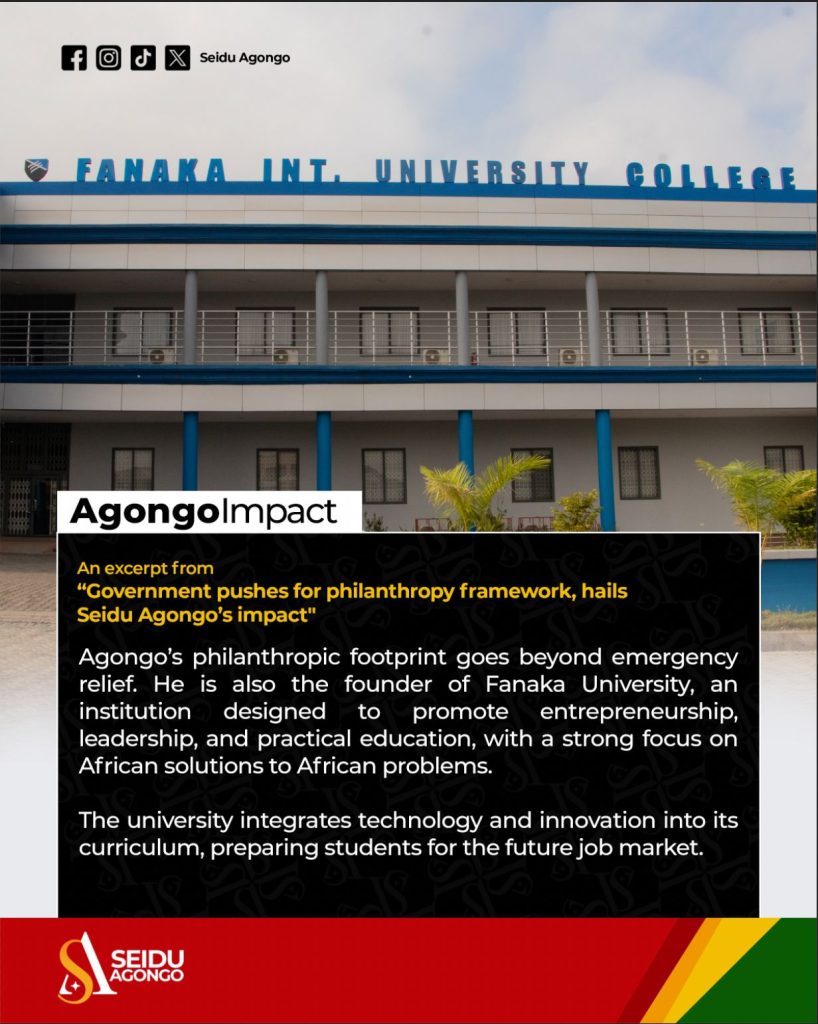
Nana Oye said these are exemplary of how individual initiatives could help uplift society but said they must be properly structured to maximise the benefits.
“We can mobilize funds in Ghana, and many Ghanaians have been of immense help in that regard,” she said.
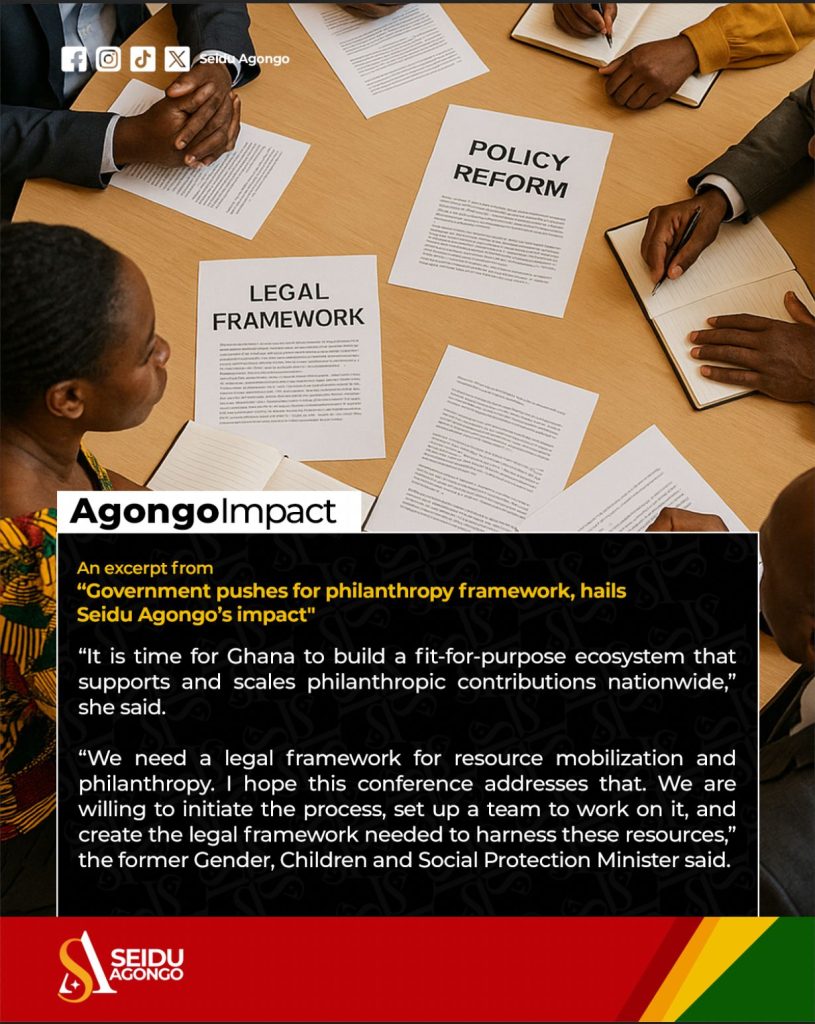
“There are several examples, but I will mention a few. We have a man called Alhaji Seidu Agongo, who recently equipped the child emergency block at the Korle Bu Teaching Hospital and pays school fees for hundreds of brilliant students,” she said.
Agongo’s philanthropic footprint goes beyond emergency relief. He is also the founder of Fanaka University, an institution designed to promote entrepreneurship, leadership, and practical education, with a strong focus on African solutions to African problems.
The university integrates technology and innovation into its curriculum, preparing students for the future job market.
Despite these efforts, Nana Oye expressed concern that philanthropy in Ghana remains fragmented, with priorities often dictated by individual organizations rather than national development needs.
This, she warned, results in sub-optimal use of resources that could otherwise accelerate inclusive growth.
“It is time for Ghana to build a fit-for-purpose ecosystem that supports and scales philanthropic contributions nationwide,” she said.
“We need a legal framework for resource mobilization and philanthropy. I hope this conference addresses that. We are willing to initiate the process, set up a team to work on it, and create the legal framework needed to harness these resources,” the former Gender, Children and Social Protection Minister said.
She pledged to personally join efforts to draft a bill in collaboration with the Attorney-General and stakeholders, adding: “If we are talking about reimagining sovereignty, then this is the way to harness resources from philanthropists in Ghana and beyond, and use them for inclusive and accelerated development.”
The 2025 Ghana Philanthropy Conference brought together stakeholders to deepen national conversations on the future of philanthropy and explore how Ghana can transform its culture of giving into a strategic engine for development.
It continues Friday with stakeholders participants exploring the needed ecosystem, comprising policy and regulatory framework to upscale and structure philanthropy and will conclude with a communique that the organisers hope will become the blueprint for action.
Source :www.kumasimail.com


